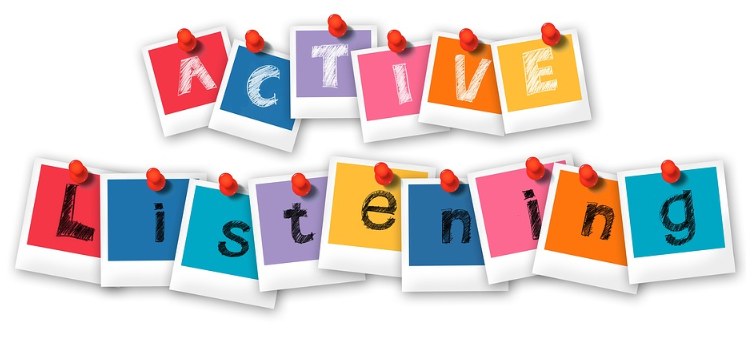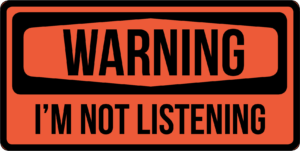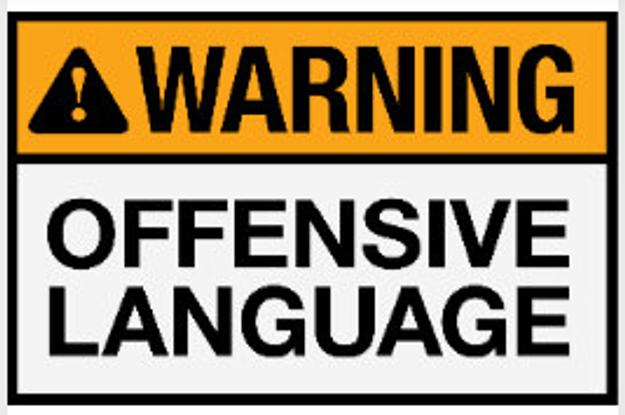*People pay thousands of dollars for education, yet listening is free. Nobody likes to be criticized. And to some extent, everyone displays some measure of defensiveness – the impulse to reject all criticisms by denying their validity and undermining the messenger.
Unfortunately, defensiveness does not serve us. It encourages us to ignore potentially useful feedback, which inhibits our ability to improve. It behooves us to rely on those with relevant qualification and expertise. We cannot learn that which we think we already know.
Listening isn’t something we’re all innately born with, and we’re all guilty of not listening at times. Listening is a skill just like reading, writing, and talking. That’s good news because it means we can all learn to listen and connect with the speaker. Like any skill, the more we practice it, the better we become. We have had practice reading, writing, and talking, but how much actual practice have we had learning how to become better listeners?
For one, we conflate listening and hearing. Many times we believe we are listening, but we are only hearing. What’s the difference? Hearing is the ability for our ears to perceive sound. Hearing is passive, and simply happens. It is no indication that we have absorbed, digested, and comprehended the information provided. Listening requires concentration so that our brains can make sense of words and sentences.
People aren’t hard of hearing…they’re hard of listening.”
Reasons precede results – if we don’t have a good reason to want to listen, we aren’t going to. Why do we want to listen? Well, listening leads to learning, and if knowledge is power, then learning is super power. Listening can be our best defense depending on our approach. My father always told me to “pay attention to the message, not the messenger.” And what this taught me is to find the silver lining in all encounters even if I didn’t like what was being said or how it was relayed.
I’m not saying to just sit there and allow disrespect and inconsideration from people. But what I am saying is that if you aspire to be a learner, you have to be able to separate your feelings from the situation long enough to gain the value of what is being said.
We’re emotional creatures and it’s natural to feel unsettled when we don’t receive information in neat and tidy packages. Unfortunately, that’s not reality. We can’t always control how we receive the information, but what we can control is our ability to process and retain it.
Whether or not we retain something should have nothing to do with our personal feelings about a person. We’re all imperfect and imperfect people deliver perfect messages all the time. The judgment of whether or not to listen should be made based around how relevant the subject matter is to our lives.
We can choose stubbornness, but that “I’ll show you, I’ll hurt me” attitude only short circuits our own ability to grow. This is called selective listening which is where we only listen when it comes to certain aspects of the conversation. It means we’ve chosen to apply filters. We half listen and summarize to get a general impression of what’s being said. This is not necessarily a bad habit, but it’s also not as accurate as devoting our full attention to everything that’s being said. It’s certainly not as effective as active listening which involves full engagement.
With active listening, we listen to obtain information. We listen with the intent to understand what’s being said and not just what we want to understand. Truly investing ourselves in what others are saying is the only way to ensure we learn about and adapt what we say to the information that we’ve been provided with.
We don’t learn from talking; we learn from listening.
•••••••••••••••••••••••••••••••••••••••••••••
Carlton Mack is a dedicated father,
passionate student of life, and author of
Attributes of Man and Redemption.
•••••••••••••••••••••••••••••••••••••••••••••










